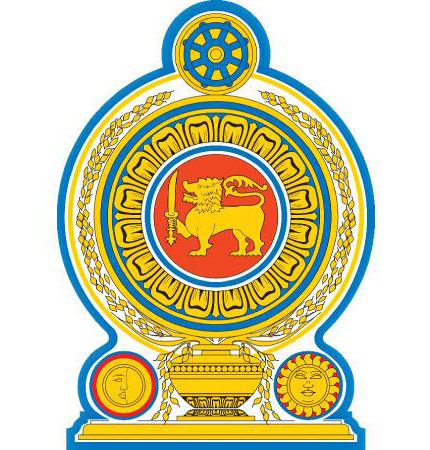Answers to Your Common
Questions
Frequently Asked Questions
01. What curriculum does LEEDS International School follow?
LEEDS follows the Edexcel International curriculum, preparing students for IGCSE and IAL examinations. We also offer the National curriculum in English medium in selected branches, providing flexibility based on student needs and future goals.
02. What are the age requirements for admission?
Children may join our Play Group from 2 years of age. For other classes, admission is based on the child’s age as of January 31st of the year. Our website features an age calculator tool to help determine the appropriate class for your child.
03. What is the admission process at Leeds?
The admission process involves:
1. Initial inquiry (phone/in-person)
2. School tour and information session
3.Student and parent assessment/interview
4. Application review
5. Payment of fees
6. Document submission
7. Orientation and enrollment
04. Is there an entrance examination?
For Play Group to Primary 1, we conduct informal assessments to understand the child’s developmental level. For Primary 2 and above, students take an entrance test to determine their appropriate grade placement and identify any learning support needs.
05. Can students enroll from other international or local schools to LEEDS?
Yes, we warmly welcome students from both international and local schools to join the Leeds International School community. Placement is carefully determined based on the student’s previous academic performance and the results of our entrance assessment. Our admissions team works closely with each family to ensure a smooth and supportive transition into our learning environment.
06. Do you accept mid-year admissions?
Yes, subject to availability. Mid-year admissions are considered on a case-by-case basis, taking into account the student’s previous schooling and our ability to support their transition.
01. What languages are taught at LEEDS?
English is our primary medium of instruction. All students also learn Sinhala. Additional language options may be available at specific branches.
02. How are students assessed throughout the academic year?
We employ a balanced assessment approach including:
- Regular formative assessments in class
- Project work and practical assessment-term examinations
- Mid-term examinations
- End-of-term examinations
- Continuous teacher observations and feedback
03. What extracurricular activities are offered?
We offer a diverse range of activities including sports (cricket, netball, swimming, badminton, karate, chess), aesthetic subjects (Art, Music and Dancing), clubs (robotics, news reading, literary, debating, MUN), and provide a range of leadership opportunities that empower students to grow in confidence and responsibility. Roles such as Stewards, Trainee Leaders, and Junior and Senior Prefects allow students to develop essential leadership skills while contributing meaningfully to school life.
04. How does LEEDS maintain quality education throughout the network?
We maintain smaller class sizes to ensure individualized attention. Our teachers are trained to identify various learning styles and adapt their teaching accordingly. For students requiring additional support, we offer targeted interventions while maintaining an inclusive classroom environment.
05. How does LEEDS prepare students for university?
LEEDS Campus of Business and Technology provides comprehensive support including:
- University application guidance
- Career counseling
- Preparation for standardized tests
- Personal statement writing assistance
- Interview preparation
- Information about scholarship opportunities
06. What are the school hours?
- Play Group 7:30AM – 11:00AM
- Kindergarten I 7:30AM – 11:30AM
- Kindergarten II 7:30AM – 12:30PM
- Pr1 – Pr 2 – 7:30AM – 1:10PM
- Primary 3 Upwards – 7:30AM – 1:30Pm
- After-school activities typically run until 4:00 PM on scheduled days.
07. Does LEEDS offer transportation services?
LEEDS does not provide daily transportation facilities for students to and from school. However, transport may be arranged by the school for specific school-approved events and sports.
08. What is the student-teacher ratio?
We maintain small class sizes with a typical student-teacher ratio of:
- Play Group to KG2: 10:1
- Primary 1-5: 20:1
- Form 1 and above: 25:1
09. Does LEEDS provide meals or snacks?
LEEDS International School offers cafeteria facilities at most branches, allowing students to purchase snacks and meals, students may also bring packed lunches from home. We encourage healthy eating and provide nutritional guidelines for students. A weekly healthy menu is also introduced for preschoolers to promote good food habits from an early age.
10. What technology resources are available to students?
All branches are equipped with computer labs and internet access. Smart classrooms are available in many branches, and students in higher grades may be permitted to use laptops for specific academic purposes following our technology use guidelines.
11. What is the fee structure?
Our fee structure includes:
- Non-refundable School Building Fund (one-time payment upon admission)
- Term fees (paid three times per year)
Specific fee details are available during the admission process and vary slightly between branches and grade levels.
12. What safety measures are in place at LEEDS schools?
Safety is our priority. Our measures include:
- Secure School with controlled entry points
- Visitor registration system
- Regular safety drills
- Trained staff for emergency response
- CCTV monitoring in common areas
- Well-equipped infirmary with trained personnel
13. How does the school communicate with parents?
We maintain open communication with parents through:
- Edugenie online portal for academic updates
- Regular parent-teacher meetings (once per term)
- PTC Book (Parent-Teacher Communication book)
- MS Teams for virtual communication
- Telegram groups for class announcements
- School newsletters
14. What is the homework policy?
Homework is assigned to reinforce classroom learning and develop independent study habits. The amount increases gradually as students progress through grades:
- Play Group to KG2: Minimal, fun learning activities
- Primary 1-3: 30-45 minutes daily
- Primary 4-5: 45-60 minutes daily
- Form 1-3: 1-1.5 hours daily
- Form 4 and above: 1.5-2 hours daily
15. How does LEEDS handle student discipline?
We follow a progressive discipline approach focused on teaching responsibility rather than punishment. Our Student Handbook outlines behavioral expectations and consequences, emphasizing respect, integrity, and personal accountability.
16. What makes LEEDS different from other international schools?
At LEEDS International School, we follow the vision “Futuristic and Global in Outlook with Religion and Culture as a Firm Foundation,” ensuring students gain global competencies while staying rooted in their cultural identity. Our approach is centered on the total personality development of each student, promoting academic excellence, character building, and holistic growth for success in a global society.
17. How does LEEDS accommodate students of different religions?
We embrace diversity and respect all faiths. Students receive instruction in their own religion, and our calendar recognizes major religious holidays. We foster mutual respect and understanding of different religious practices while maintaining our commitment to shared values.
18. What opportunities are there for parent involvement?
Parents are valued members of our educational community. Involvement opportunities include:
- Parent-teacher meetings
- School events and celebrations
- Career talks and expert presentations
- Volunteering for special activities
- Supporting community service initiatives
19. Does LEEDS have boarding facilities?
No, LEEDS operates as a day school across all branches.
20. What achievements is LEEDS particularly proud of?
We take pride in our students’ accomplishments across multiple domains:
- Consistent high performance in Edexcel examinations with students earning highest marks in Sri Lanka and worldwide in various subjects
- Achievements in sports at district, provincial, and national levels
- Recognition for community service initiatives
- Strong university placements at prestigious institutions locally and internationally






